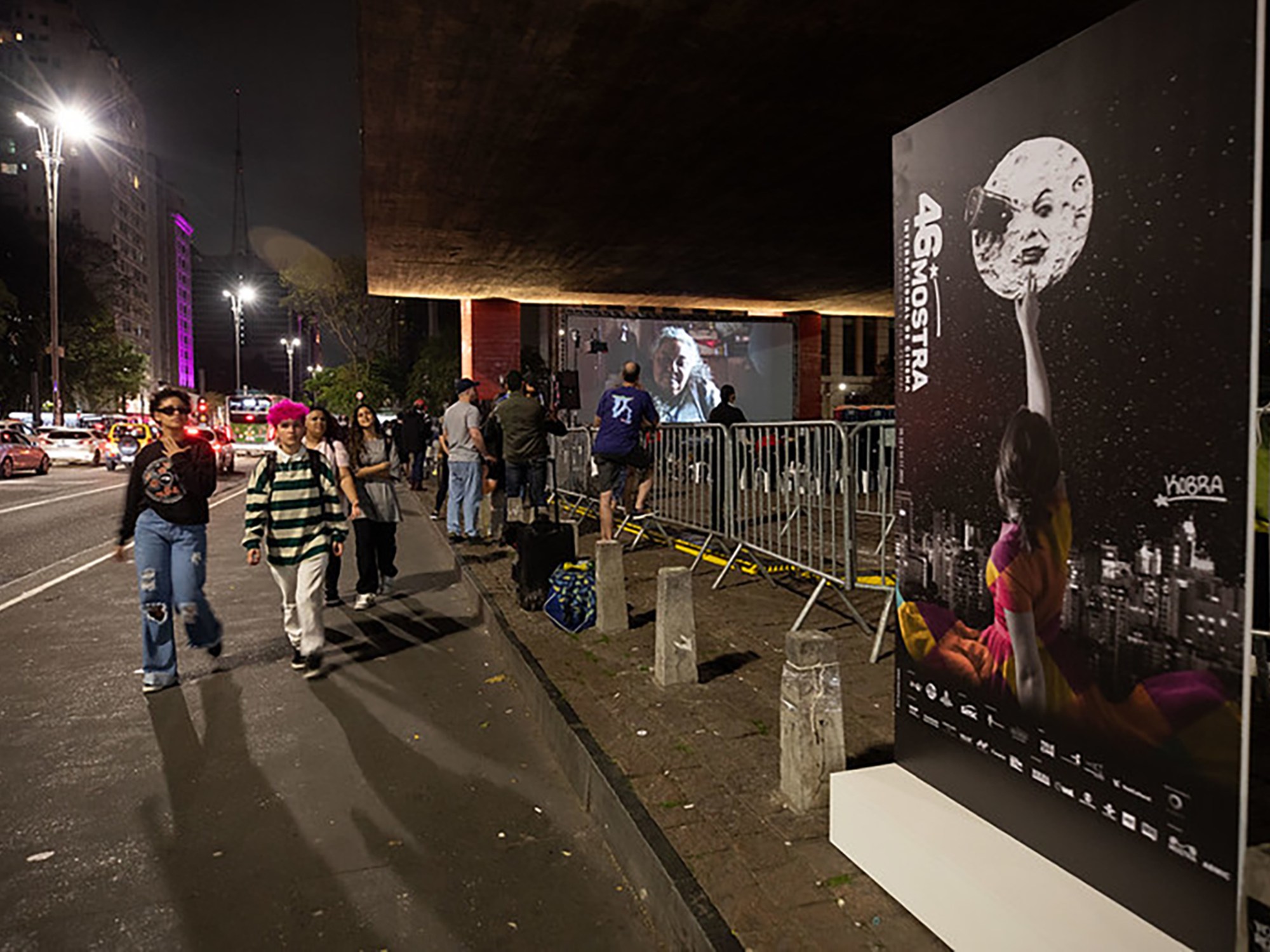
- Festivals
The Mostra São Paulo Celebrated Great Cinema Once Again
This was a special year for the Mostra, as the São Paulo Film Festival is popularly and affectionately known at home. Founded in 1977 as a small event by film critic Leon Cakoff, head of the cinema department of the legendary art museum MASP, the Mostra has grown through the years to become one of Brazil’s key festivals, never losing its independent spirit. The 46th edition, that was held in the country’s largest city from October 20th to November 2nd, took over several cinemas across the large metropolis, home to more than 12 million people. And even though financial support for the event has dropped considerably, the organizers managed to get strong material both from local filmmakers and from around the world, turning the Mostra into a great showcase for several films that are in the running for the big awards.
Only a few directors and producers were present to introduce their films, a big change from years past, and that made the screening of Armageddon Time a special one. James Grey sent a cheerful message to the Brazilian audience and powerful local producer Rodrigo Texeira, the man behind such hits as Call Me by Your Name, The Witch and The Lighthouse, and was instrumental to Grey’s retelling of his life as a child, spent almost an hour talking about the film in a Q&A.
Bardo, False Chronicle of a Handful of Truths, the new film by Alejandro G. Iñárritu was also in the program with its surrealistic images and his exploration of the dilemmas of a rich Mexican immigrant to the US, as well as Triangle of Sadness, the Venice winner from Ruben Ostlund that is currently on cinemas in the US but didn’t reach theaters in Brazil yet, which made every screening a sold out one. The international program included Thaicovsky’s Wife from Russia, Blanquita from Chile, No Bears from Iran, One Fine Morning from France, The Kings of the World from Colombia, El suplente from Argentina and Gigi La Legge from Italy, among many others. One special event was the screening in two parts of Marco Bellocchio’s masterpiece, Exterior, Night, the first incursion of the Italian master in a miniseries, exploring once again the life and death of Aldo Moro, which ended up transformed in a film of more than 5 hours.
After 12 days of non-stop screenings, the festival closed on November 2nd on a big night for the HFPA and the Golden Globes. The organization cosponsored the closing party, attended by more than 300 guests at the Brazilian Cinematheque, during the announcement of the festival awards, a ceremony presided by Renata de Almeida, widow of Cakoff and director of the event for the last 11 years. A representative of the HFPA gave De Almeida a plaque of recognition, stressing the record number of voters from Brazil for the upcoming 80th Golden Globes as part of the organization’s efforts to promote diversity and increase access.
In fact, when the HFPA added 21 new members in 2021, two of them were Brazilians, elevating their number in the group to four. This year, the HFPA invited 103 international journalists to vote in the upcoming show, five of them based in Brazil. Over the years, several Brazilian films have ether won or been nominated for Golden Globes, Dona Flor and Her Two Husbands in 1979 and City of God in 2003 and winning the Globe in 1999 with Central Station.
The big winner at the 2022 Mostra was Aftersun, a coproduction between UK and USA directed by Charlotte Wells. The Grand Jury also gave special mentions to the animated film Blind Willow, Sleeping Woman by Pierre Foldes (France/Canada/Luxembourg/Netherlands), Ali Junejo as Best Actor for Joyland by Saim Sadiq (Pakistan), Zelda Samson as Best Actress for Dalva by Emmanuelle Nicot (Belgium/France). The Audience Award for Best Brazilian Feature was for The Smoke Master by Andre Sigwalt and Augusto Soares, while the animated film Nayola by Jose Miguel Ribeiro (Portugal) won the same award for Best International Feature. Best Brazilian Documentary was for Exu é ó Universo by Thiago Zanato and Best International Documentary was for March on Rome by Mark Cousins. The Critics Award for Best International Film was for Exterior, Night, while the one for Best Brazilian Film was for Elis & Tom: So Tinha de Ser Como Voce by Roberto de Oliveira.

